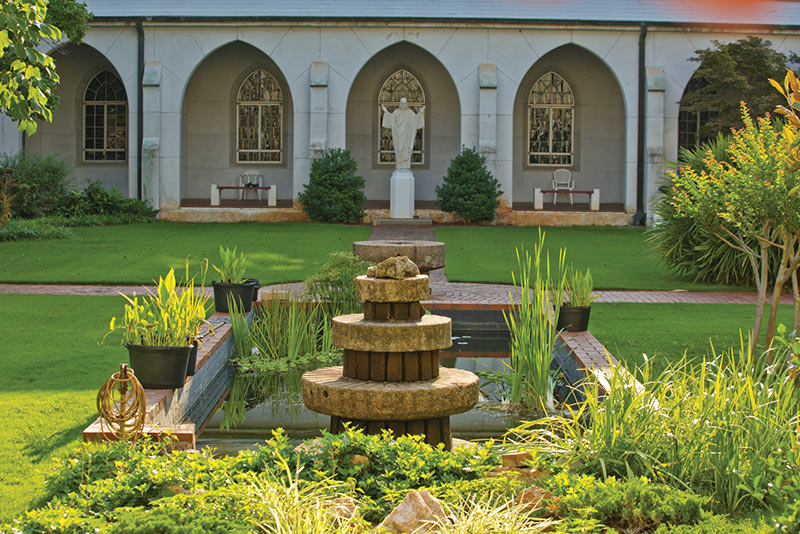 It’s not every day you’re able to interview a monk. And it’s even rarer to interview him about bonsai trees. But Friar Gerard Gross has been in charge of bonsai cultivation at the Monastery of the Holy Spirit for the last twelve years, so he seems like the right person to chat with about the notoriously finicky plant. Here, he shares his insights.
It’s not every day you’re able to interview a monk. And it’s even rarer to interview him about bonsai trees. But Friar Gerard Gross has been in charge of bonsai cultivation at the Monastery of the Holy Spirit for the last twelve years, so he seems like the right person to chat with about the notoriously finicky plant. Here, he shares his insights.
Southbound: What do you like most about working with bonsai?
FG: It’s good to get our hands in dirt, in God’s beauty, God’s creation. It teaches patience, it shows life and creation, and it helps others in discovering beauty. It transforms us.
Southbound: We like the sound of that. What kinds of bonsai do you cultivate?
FG: Japanese garden, maple, boxwood, elm, and juniper. There are also some tropical bonsai trees grown indoors.
Southbound: What kind of care do bonsai require? Aren’t they tough to grow?
FG: Bonsai are like pets. They don’t live on their own, they need attention, and you can’t neglect them … The management of bonsai trees is very important. The right amount of light, water, and soil are key to keeping the trees alive. Trimming and pruning are also greatly important. Most require you to trim them throughout the summer. Others, like boxwoods and conifers, only require trimming about once a year. Bonsai roots should also be pruned every three to five years.
Southbound: What’s the average lifespan of bonsai trees?
FG: The maturity of bonsai trees varies; it depends on the type of tree it is. Trees usually grow to be hundreds of years old, so with the proper care and atmosphere, the same can be said for bonsai. Most mature in around five to six years and grow to be between two to three feet tall.
Southbound: I’m new to growing bonsai. What’s the most forgiving kind to start with?
FG: If you want to get into growing and nurturing the beauty of the bonsai, maple bonsai are my personal favorite—they require simplistic nurturing. I also recommend cotoneaster, Japanese garden, and juniper bonsai, because they are easier to keep alive.














![The North Carolina Museum of Natural Sciences’ newest exhibit is a [pre]historic first](https://cdn2.atlantamagazine.com/wp-content/uploads/sites/4/2024/04/DD-3-100x70.jpg)


